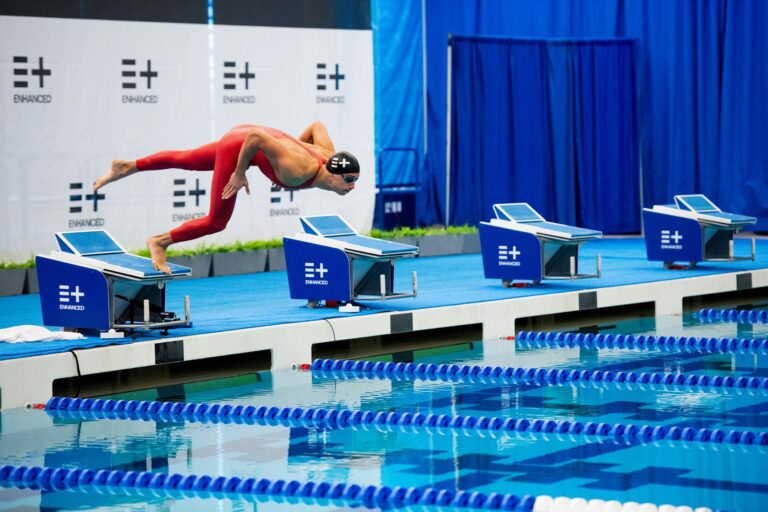WADA Urges U.S. Authorities to Intervene Against the Controversial Enhanced Games
WADA Highlights Ethical Dilemmas Surrounding the Enhanced Games
The World Anti-Doping Agency (WADA) has issued a strong condemnation of the newly proposed Enhanced Games, describing the event as a profound ethical challenge to the spirit of sportsmanship. By openly endorsing the use of performance-enhancing substances, the competition threatens to dismantle the foundational values of fair play and athlete safety. WADA’s recent declaration stresses the dangers of normalizing doping practices, warning that such acceptance could erode confidence in sports worldwide and create troubling precedents for future athletic events.
WADA’s chief concerns include:
- Health Hazards: Permitting unrestricted doping exposes athletes to significant medical risks without proper supervision.
- Sporting Integrity: The devaluation of anti-doping efforts risks diminishing the honor associated with genuine athletic accomplishments.
- Governance Issues: Conflicting standards across competitions could complicate enforcement and regulatory consistency.
| Issue | Consequences | Recommended Measures |
|---|---|---|
| Health Hazards | Compromised athlete safety | Implement rigorous medical oversight |
| Sporting Integrity | Reduced trust in competition outcomes | Expand educational outreach on clean sport |
| Governance Issues | Fragmented anti-doping policies | Enhance international regulatory collaboration |
How the Enhanced Games Threaten Fairness and Athlete Credibility
Central to the controversy is the risk that the Enhanced Games pose to the core tenets of competitive sportsmanship. By creating a platform that openly promotes pharmacological enhancement, the event jeopardizes the principles of fair competition and athlete integrity that organizations like WADA have long championed. This paradigm shift could prioritize chemical advantage over natural ability and dedication, fundamentally altering the nature of athletic success.
Such developments may fracture the sports landscape,pressuring clean athletes to either conform to doping practices or face diminished competitiveness. The ripple effects extend beyond individual participants, perhaps undermining the legitimacy of established competitions and eroding public confidence in sports achievements. The table below summarizes key potential impacts:
| Dimension | Possible Outcome |
|---|---|
| Competitive Equity | Unbalanced contests favoring chemically enhanced athletes |
| Athlete Well-being | Heightened health risks from unsupervised substance use |
| Public Trust | Increased doubt about the authenticity of sporting results |
- Weakens anti-doping frameworks established by global and national authorities.
- Generates moral conflicts for athletes torn between ambition and ethical standards.
- Complicates enforcement as anti-doping agencies face blurred distinctions between permitted and banned practices.
Urgent Appeals for Regulatory Intervention by U.S. Sports Bodies
In light of mounting controversy, leading U.S. sports organizations are being called upon to take swift and decisive regulatory action to protect the integrity of athletic competition. WADA has voiced serious apprehension about the Enhanced Games’ open acceptance of doping, framing it as a direct affront to the foundational ideals of fair play and athlete welfare. Prominent figures within the sports community warn that inaction could legitimize drug use and unravel years of anti-doping progress.
Key regulatory demands include:
- Strict enforcement of extensive testing and monitoring protocols across all recognized sporting events.
- Immediate revocation or suspension of licenses for entities associated with the Enhanced Games.
- Clear, enforceable sanctions designed to deter athletes and organizers from breaching anti-doping regulations.
| Association | Recommended Action | Timeline |
|---|---|---|
| U.S. Anti-Doping Agency (USADA) | Prohibit participation and impose penalties | Within 30 days |
| National Collegiate Athletic Association (NCAA) | Reassess athlete eligibility criteria | Within 60 days |
| U.S. Olympic & Paralympic Committee | Collaborate with WADA for oversight and enforcement | Immediate |
Strategies to Enhance Anti-Doping Enforcement and Preserve Clean Sport
Strengthening anti-doping measures requires a multifaceted approach that not only tightens regulations but also promotes openness and accountability across all levels of sport.A cornerstone of this strategy is the creation of autonomous oversight entities with unrestricted access to athlete biological data and testing procedures. This independence is crucial to eliminate conflicts of interest, notably in emerging competitions operating beyond WADA’s jurisdiction. Incorporating cutting-edge detection technologies—such as machine learning algorithms and novel biomarker assays—can considerably enhance early detection of doping violations and serve as a deterrent.
Beyond technological advancements, cultivating a culture of integrity within the athletic community is vital to sustaining fair competition. Recommended initiatives include:
- Mandatory educational programs addressing the health risks and ethical implications of doping for athletes,coaches,and support personnel.
- Robust protections for whistleblowers to encourage reporting of violations without fear of retaliation.
- Enhanced international cooperation among anti-doping agencies to close regulatory loopholes exploited by unsanctioned events.
Effective collaboration between global sports federations and national governments is essential to harmonize enforcement efforts and safeguard the integrity of sport worldwide.
| Initiative | Expected Benefit |
|---|---|
| Self-reliant Oversight | Guarantees impartial testing and transparent reporting |
| Advanced Detection Technologies | Enhances accuracy and timeliness of doping identification |
| Educational Campaigns | Raises awareness and fosters ethical behavior among athletes |
| Whistleblower Safeguards | Promotes openness and accountability |
| Global Cooperation | Eliminates cross-border enforcement gaps |
Final Thoughts on the Future of the Enhanced Games and Clean Sport
As the debate over the Enhanced Games intensifies, WADA’s appeal for U.S. authorities to halt the event highlights the persistent challenges in regulating performance-enhancing methods in athletics. With the fate of the Enhanced Games hanging in the balance, stakeholders from athletes to regulators will be closely monitoring how this contentious issue unfolds. This controversy underscores the ongoing tension between innovation in sports and the enduring commitment to fair competition that organizations like WADA strive to protect.




